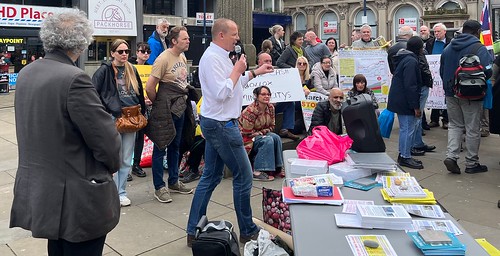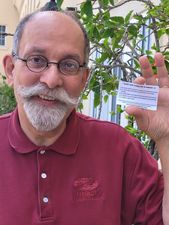
PREV ARTICLE
NEXT ARTICLE
FULL ISSUE
PREV FULL ISSUE
DIEHARDS PROTEST CASH DISAPPEARANCE
The Wall Street Journal published an article about protesters from the There's another revolt brewing in the English heartlands.
Some 200 years after textile workers smashed newfangled looms here during the first stirrings of the industrial revolution, other rebels are worried about a newer technology: tap-and-go bank cards and smartphone payment apps. Actual cash changes hands in only around 15% of transactions in the U.K., pushed out by the speed and convenience of using a card or phone. In parts of London, cash has become something akin to a prison currency like ramen noodles or cigarettes, circulated among panhandlers or those on the margins of society. An unlikely coalition warns that by giving up cash, people could be losing more than they bargained for. Bank-note printers have pooled resources to fund academic studies to demonstrate how cash is an important piece of infrastructure. Simon Youel at Positive Money, a London nonprofit focusing on financial inclusion, says cash is inherently democratic.
By going card-only, bars and restaurants are trying to pull in what they see as the right kind of customer, usually younger and more affluent, he said. People around the world have been embarrassed at times when hair salons, pubs or salad chains asked for plastic and they had only paper. Some are standing up for paper money and have no plans to fold.
Ferry, who lives in eastern Tennessee and is semiretired, isn't opposed to credit cards but makes a point of paying with cash as often as he can. He and his wife bring hundreds of dollars on twice-monthly errand runs into town.
Among pro-cash sympathizers are the brothers behind Right Said Fred, the group known for 1991 hit
Brett Scott, author of So, were there protesters when landlords stopped accepting payment in eels? -Editor
To read the complete article (subscription required), see:
Wayne Homren, Editor The Numismatic Bibliomania Society is a non-profit organization promoting numismatic literature. See our web site at coinbooks.org. To submit items for publication in The E-Sylum, write to the Editor at this address: whomren@gmail.com To subscribe go to: https://my.binhost.com/lists/listinfo/esylum All Rights Reserved. NBS Home Page Contact the NBS webmaster 
|


